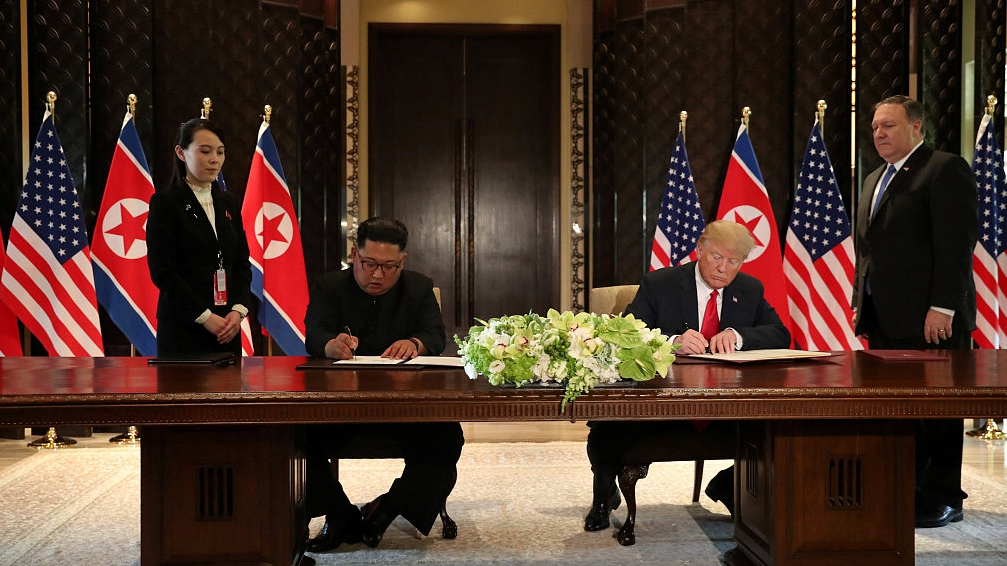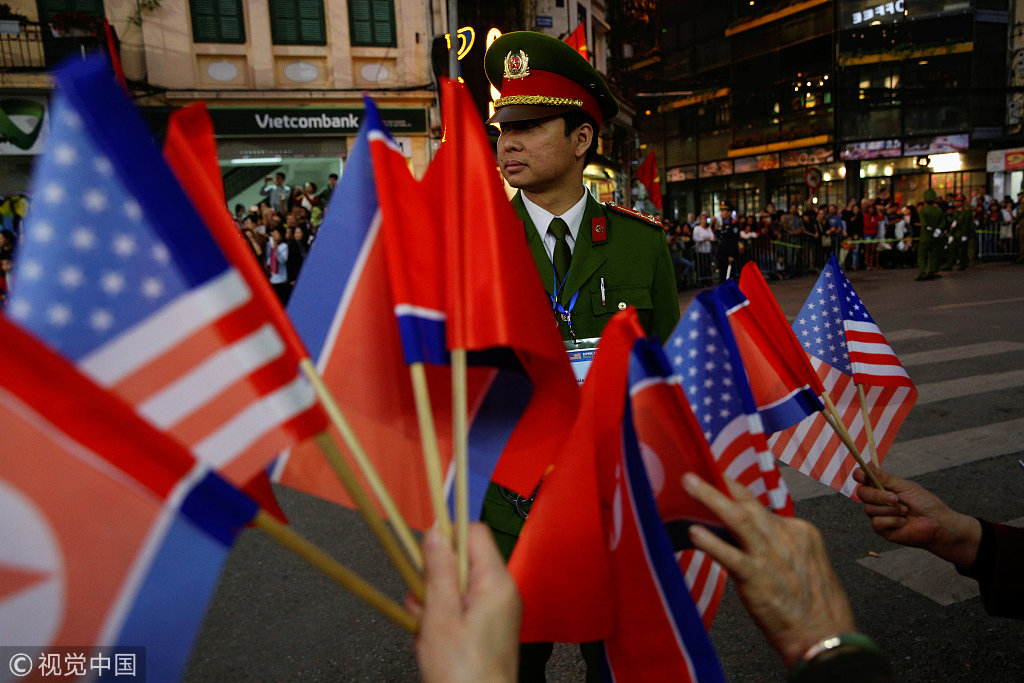
Opinion
13:58, 02-Mar-2019
Diplomacy calls for continuous negotiations between U.S. and DPRK
Wang Li

Editor's note: Wang Li is a professor at Jilin University. The article reflects the author's opinion, and not necessarily the views of CGTN.
The disappointment of those closely watching the second Trump-Kim summit was understandable since the meeting ended with a no deal. Yet, diplomatically, this summit is not a failure but only a setback. Although the United States and DPRK presented their own narratives on the disagreement, they didn't finger point at each other as what they would have usually done. Actually, Trump spoke of Kim Jong Un in friendly terms and Pyongyang's tone on the impasse of the talks was soft. Everything indicates that both countries still look forward to the next meeting. Past experiences told us that challenges are inevitable when the two sides are discussing issues that concern their core interests.
It is no doubt that both sides will benefit from sincere dialogue. A wise negotiator should never base the success of his negotiation on false promises and on breach of faith. According to this standard, Trump and Kim have done pretty well since the first summit in Singapore. And there is no reason to regard the second summit in Hanoi as a failure.
More significantly Trump still holds that Kim has vowed not to test any rockets, missiles or anything nuclear. Equally, he has praised China's role in addressing the issues on the Korean Peninsula since China has been a big help and influential at the crucial moment. They are aware of the dual-tracks and two suspensions proposals by the Chinese government. This has also reflected Beijing's persistent attitude towards the Korean nuclear issue.

A policeman stands guard along a road near the Metropole Hotel ahead of the second DPRK-U.S. summit in Hanoi, Vietnam, February 27, 2019. /VCG Photo
A policeman stands guard along a road near the Metropole Hotel ahead of the second DPRK-U.S. summit in Hanoi, Vietnam, February 27, 2019. /VCG Photo
China's role on the Korean Peninsula issue is irreplaceable since Kim has made four trips to China in just ten months with a view to discussing the issue of denuclearizing the Korean Peninsula, and Trump has praised Xi as "a great leader who is highly respected due to his help to mediate with Pyongyang." It is reportedly said that Beijing has urged for patience in DPRK-U.S. talks since it was important not to rush into a bad deal.
Sure it is not coincidental that the DPRK's deputy foreign minister Ri Gil Song arrived in Beijing, shortly after the end of the Trump-Kim summit in Hanoi. Chinese Foreign Minister Wang Yi highlighted the necessity for the two sides to stay committed to the complete denuclearization of the Korean Peninsula through dialogue.
It is fair to say that the first summit of 2018 was a good start because their joint statement did state that the two sides will "work toward complete denuclearization of the Korean Peninsula," with Trump promising to end military exercises with the Republic of Korea (ROK) and Kim's pledge that the DPRK would neither make and test nuclear weapons any longer, nor use and proliferate them.
What happened in the second summit seems quite controversial and more complicated. But we should have confidence in the prospective meetings between the United States and the DPRK in the near future. In effect, Pyongyang and Washington have agreed that lifting sanctions is a key part of denuclearization that needs to be negotiated sincerely and constructively as well. At this crucial moment, it might be time for China to resume its role as expected. It seems that China is ready to extend its help as senior Chinese official Yang Jiechi talked to Pompeo over the phone on March 1 that China is willing to continue to play a constructive role on the Korean Peninsula issue.
(If you want to contribute and have specific expertise, please contact us at opinions@cgtn.com.)

SITEMAP
Copyright © 2018 CGTN. Beijing ICP prepared NO.16065310-3
Copyright © 2018 CGTN. Beijing ICP prepared NO.16065310-3